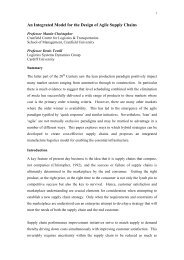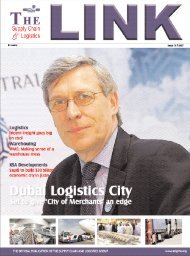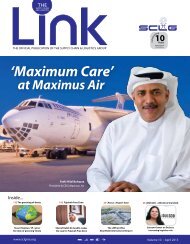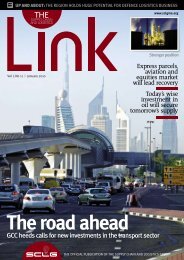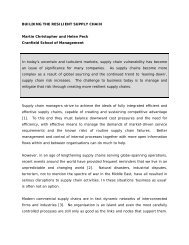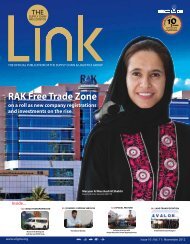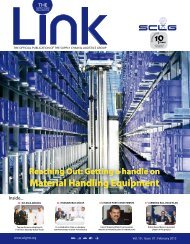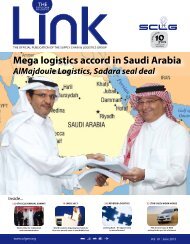Create successful ePaper yourself
Turn your PDF publications into a flip-book with our unique Google optimized e-Paper software.
16 Supply Chain<br />
Halal food for<br />
thought<br />
The potential value of global halal food market<br />
could rise to US$500 billion, according to figures<br />
released by the International Market Bureau of<br />
Canada.<br />
Halal is an Arabic word meaning lawful or<br />
permitted. In reference to food, it is the dietary<br />
standard for Muslim population, as prescribed in<br />
Islamic holy book.<br />
Globally, there are an estimated two billion<br />
Muslim consumers of halal food, which are set to<br />
rise to three billion by as soon as 2010. As a<br />
demographic group, they spread across countries,<br />
typical diets and income groups, creating both a<br />
marketing and distribution challenges.<br />
Middle East analysts believe there are massive<br />
opportunities for local and regional producers to tap<br />
into and network with international distributors to<br />
cater to the demand for halal foodstuffs.<br />
Hasan A. Rimawi, Chief Technical Officer of Dubai<br />
Co-operative Society, tells The <strong>Link</strong> about<br />
complexities of Halal Food market and Al Islami’s<br />
successes.<br />
Please brief us about Al Islami Foods.<br />
The Al Islami story unfolds in the early seventies,<br />
when Hajj Saeed Bin Ahmad Lootah instituted the<br />
Dubai Co-operative Society. With relentless<br />
dedication, untiring efforts and outstanding<br />
integrity, the company soon began to set standards<br />
for others to follow. And in 1981, with a goal to<br />
make real halal food available for consumers, Dubai<br />
Co-operative Society established Al Islami. By coordinating<br />
Islamic supervision on all meat products<br />
imported from outside the UAE, Al Islami quickly<br />
gained the trust of millions of consumers through its<br />
first product line - frozen chicken - across the UAE<br />
and the Gulf. Spurred on by this success, Al Islami<br />
continued its efforts to produce a variety of real<br />
halal meat products like mutton, beef, burgers,<br />
sausages, kebabs, minced meat and much more.<br />
How big is the halal food market in the UAE?<br />
Hasan A. Rimawi<br />
Chief Technical Officer,<br />
Dubai Co-operative Society,<br />
Globally, halal food is US $150-billion market and<br />
caters to over two billion consumers worldwide. The<br />
UAE is witnessing a food consumption growth of an<br />
average 30 per cent and the food services segment<br />
makes up a considerable percentage of that<br />
amount. Unfortunately halal food does not have<br />
separate statistics to quote, but as the UAE<br />
population grows, imports of halal food products are<br />
also on the rise. Consumers here are very conscious<br />
of what they are eating and sensitive to halal aspect<br />
when trying new products. Without doubt, the halal<br />
issue is very important and high in demand.<br />
What are the complexities involved in halal food<br />
chain?<br />
Halal food on the surface appears to be simple to<br />
many people who only associate the halal food with<br />
animal slaughtering methods. Many non-Muslims<br />
associate halal as a marketing and labelling scheme.<br />
However, halal is a much more complex process – it<br />
requires complete Islamic supervision of food<br />
Supply Chain & Logistics Group | www.sclgme.org



